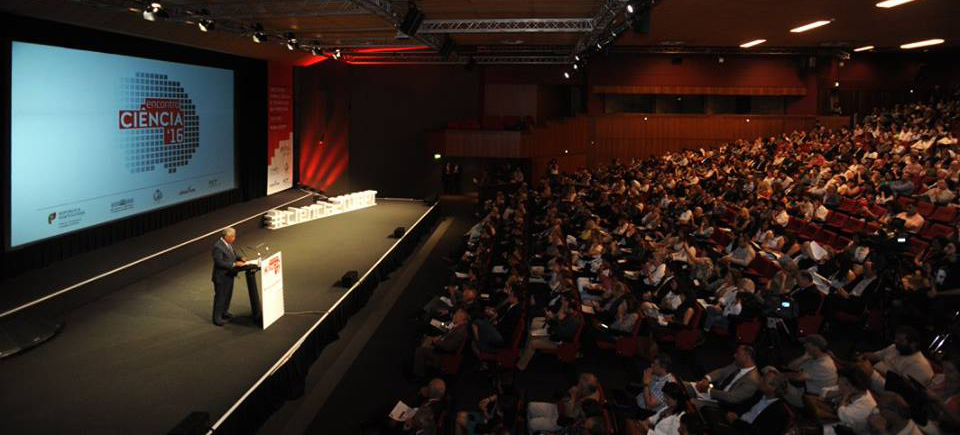Science 2016 brings together Portuguese researchers

The meeting exceeded all expectations, with almost 4500 registrations, more than 500 posters from doctoral students, 450 speakers and moderators distributed among 100 parallel sessions and about 50 practical demonstrations of ongoing research projects. The meeting covered the various areas of scientific research, from arts and design to engineering, from deep sea to space, from physics to education, from polar science to nanotechnology and personalized medicine, among many others.
 Seven plenary sessions, with guest speakers and the presence of members of the government and the European Commission, highlighted the areas of Sea and Space, Health, Agriculture, and History. Companies such as Critical Software and the Veniam spoke of the importance of research for their development, and the Hovione has announced a 5 million euro plan for research projects, open to the scientific community, to solve concrete issues in the pharmaceutical industry. Open Science and the initiative More Science, Less Bureaucracy were also under debate.
Seven plenary sessions, with guest speakers and the presence of members of the government and the European Commission, highlighted the areas of Sea and Space, Health, Agriculture, and History. Companies such as Critical Software and the Veniam spoke of the importance of research for their development, and the Hovione has announced a 5 million euro plan for research projects, open to the scientific community, to solve concrete issues in the pharmaceutical industry. Open Science and the initiative More Science, Less Bureaucracy were also under debate.
 The importance of science was stressed by the various policy makers and representatives of international organizations that passed through the Lisbon Congress Center. The interviews conducted throughout the meeting are available at Facebook @encontrociencia and in the twitter with hashtag #science2016enand the videos on the site www.ciencia2016.pt .
The importance of science was stressed by the various policy makers and representatives of international organizations that passed through the Lisbon Congress Center. The interviews conducted throughout the meeting are available at Facebook @encontrociencia and in the twitter with hashtag #science2016enand the videos on the site www.ciencia2016.pt .
Science 2016 has resumed the tradition of an annual meeting of the national scientific community for the presentation of the main themes, results and issues in the various areas of Science and Technology. The Science series began in 2007 and continued until 2010, becoming a unique moment of encounter and reflection for the Portuguese scientific community. At the end of the meeting it was announced that it will be held in 2017.
 The Science 2016 meeting was supported by the Ministry of Science, Technology and Higher Education. It was promoted by the Foundation for Science and Technology, in collaboration with Ciência Viva - National Agency for Scientific and Technological Culture, the Academy of Sciences and the Parliamentary Committee for Education and Science.
The Science 2016 meeting was supported by the Ministry of Science, Technology and Higher Education. It was promoted by the Foundation for Science and Technology, in collaboration with Ciência Viva - National Agency for Scientific and Technological Culture, the Academy of Sciences and the Parliamentary Committee for Education and Science.
Image Credits: Science 2016